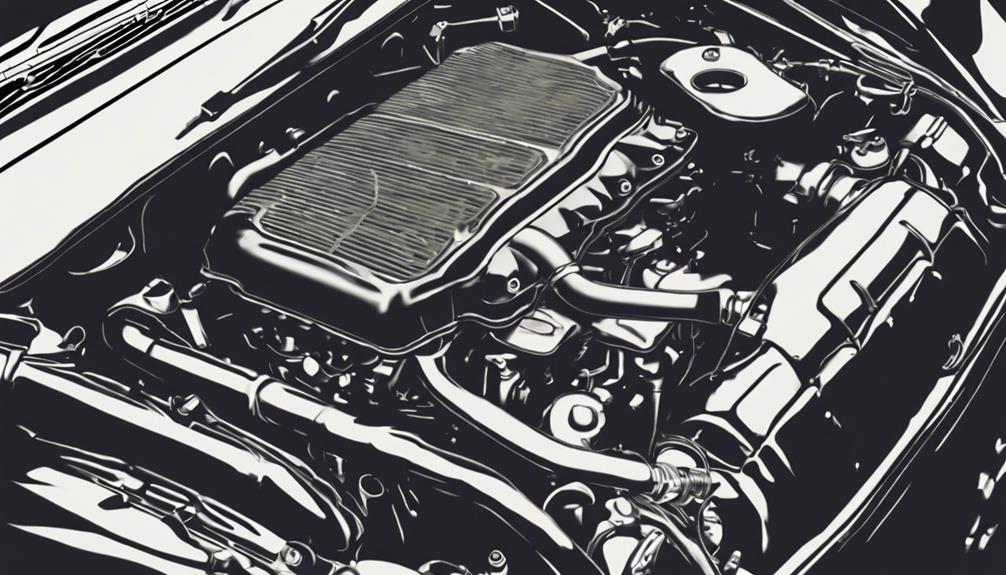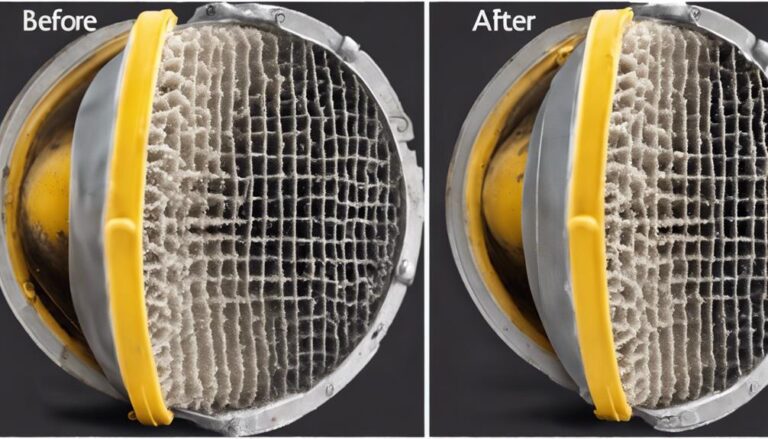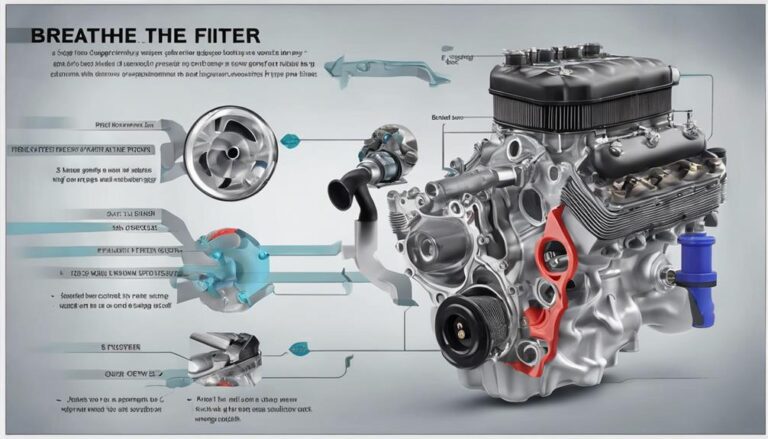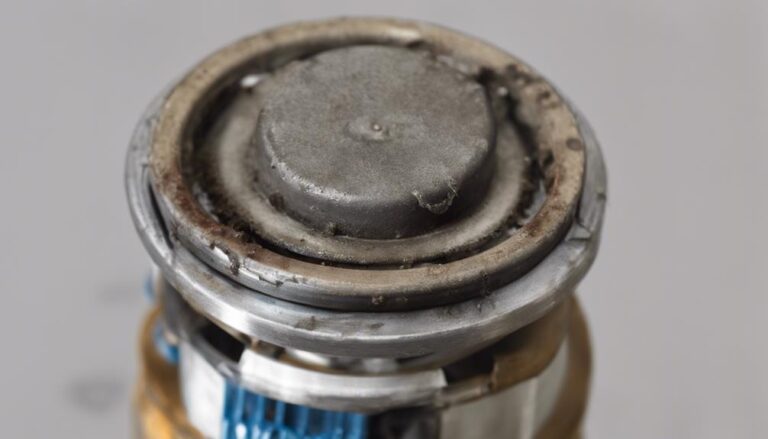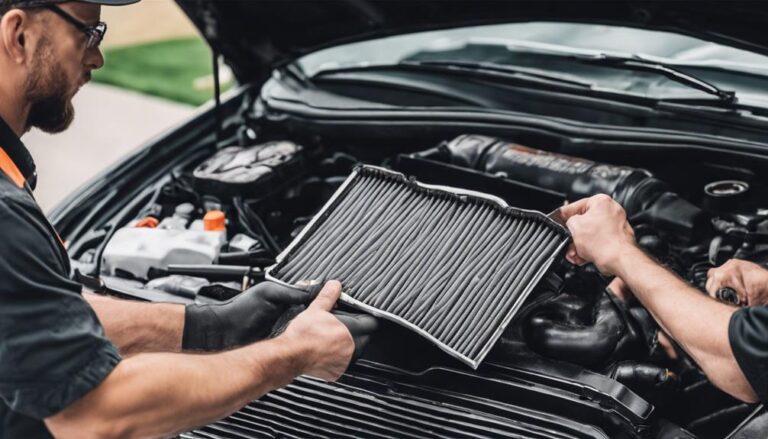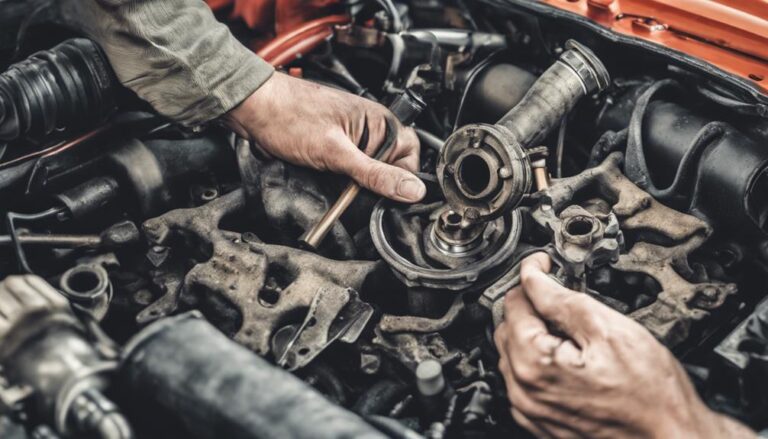10 Signs of Faulty PCV Valve & Breather Filter
If you think your car is running smoothly, you might be surprised to learn that a faulty PCV valve and breather filter could be causing subtle issues.
Experiencing unexplained oil consumption or noticing a dip in engine performance? These could be signs of a deeper problem lurking within your vehicle's system.
Stay tuned to discover how these seemingly minor components can have a significant impact on your car's overall performance and what warning signs to look out for.
Key Takeaways
- Excessive oil consumption, rough idle, and poor engine performance signal issues with the PCV valve or breather filter.
- Check engine light, rough idle, and engine misfires may indicate PCV valve or breather filter problems.
- Oil leaks near valve cover, breather hose, or PCV valve suggest potential faults requiring attention.
- Blue exhaust smoke, reduced fuel efficiency, and engine stalling can be linked to faulty PCV valve or breather filter.
Excessive Oil Consumption
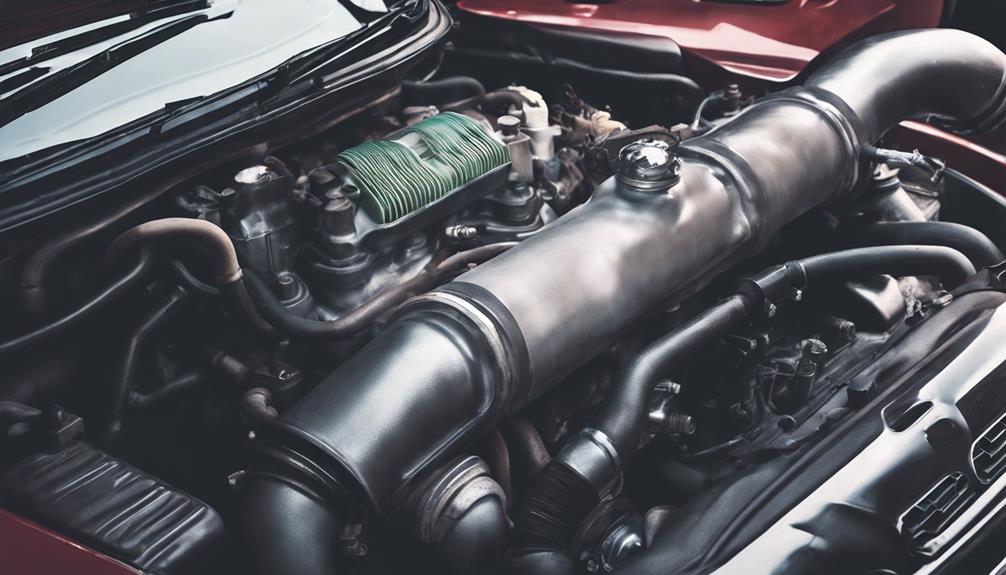
If you notice your vehicle consuming oil at a higher rate than usual, it could be a sign of a faulty PCV valve or breather filter. Excessive oil consumption can lead to various issues such as oil leaks and a rough idle. When the PCV valve or breather filter malfunctions, they can cause an imbalance in the air-fuel mixture, leading to poor combustion and increased oil consumption.
Oil leaks are a common consequence of a faulty PCV valve or breather filter. These leaks can occur due to increased pressure in the crankcase, causing oil to escape through seals or gaskets. If you notice oil spots under your vehicle or a burning smell coming from the engine compartment, it may be a result of oil leaks caused by a malfunctioning PCV valve or breather filter.
Furthermore, a rough idle can also be attributed to excessive oil consumption. When the PCV valve isn't functioning correctly, it can lead to a rich air-fuel mixture, resulting in a rough and unstable idle. If you experience shaking or vibrations while the engine is running at idle, it's important to have your PCV valve and breather filter inspected to ensure top engine performance.
Poor Engine Performance
Poor engine performance may be a direct result of a malfunctioning PCV valve or breather filter. When these components fail, they can lead to a range of issues that impact how your engine operates. One common problem is a decrease in fuel efficiency. A faulty PCV valve or breather filter can disrupt the air-fuel mixture ratio, causing your engine to burn more fuel than necessary. This not only wastes fuel but also puts a strain on your engine, affecting its overall performance.
In addition to fuel efficiency, poor engine performance due to a malfunctioning PCV valve or breather filter can also result in challenges with engine maintenance. When your engine isn't running efficiently, it can lead to increased wear and tear on various components. This can result in a need for more frequent maintenance and repairs, ultimately costing you more time and money in the long run. Hence, addressing any issues with your PCV valve or breather filter promptly is crucial to maintain engine performance and longevity.
Check Engine Light On
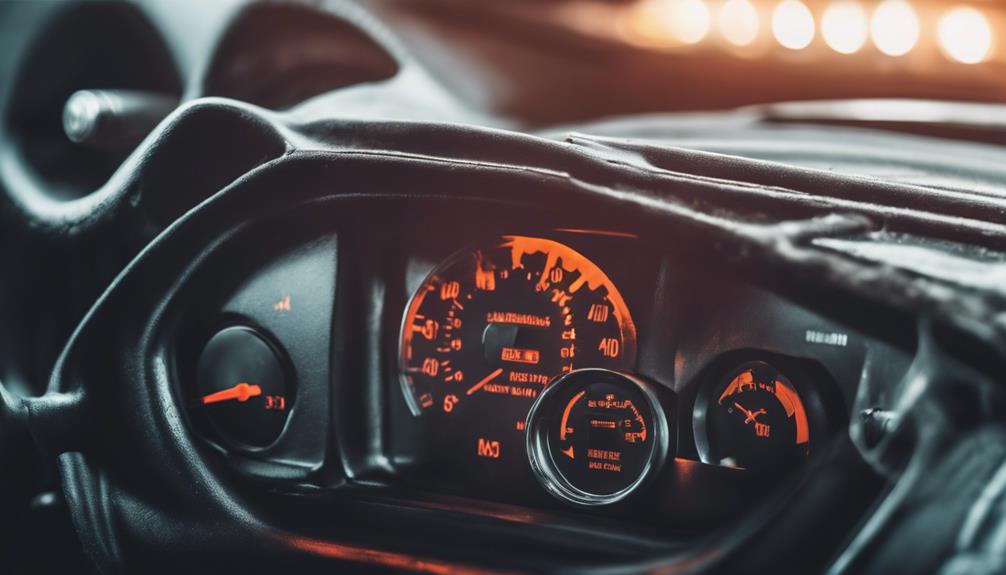
Experiencing the illumination of the check engine light on your dashboard could signal a potential issue related to the PCV valve or breather filter in your vehicle. The PCV valve function is essential in maintaining proper engine performance by regulating the flow of gases between the crankcase and intake system, preventing pressure buildup and oil sludge formation. On the other hand, breather filter maintenance is important as it prevents contaminants from entering the engine, ensuring clean airflow and best combustion. Ignoring these components can lead to decreased fuel efficiency, increased emissions, and potential damage to the engine over time.
| Signs of Faulty PCV Valve & Breather Filter |
|---|
| – Check engine light illuminates |
| – Decreased fuel efficiency |
| – Increased emissions |
| – Potential engine damage |
| – Rough idling |
If your check engine light is on, it's advisable to promptly inspect the PCV valve and breather filter to prevent further complications and maintain your vehicle's performance.
Rough Idle
After noticing the check engine light, another indication of potential issues with the PCV valve or breather filter is experiencing a rough idle in your vehicle. A rough idle can be a sign of improper air-fuel mixture due to PCV valve problems or clogged breather filters.
To address this, consider the following:
- PCV Valve Maintenance: Regularly check and replace the PCV valve as part of your maintenance routine.
- Idle Speed Adjustments: If your vehicle's idle speed is erratic, consider adjusting it to manufacturer specifications.
- Inspect Breather Filter: Check the breather filter for clogs or dirt accumulation that could affect engine performance.
- Consult a Mechanic: If the rough idle persists, seek professional help to diagnose and resolve the issue promptly.
- Monitor Engine Performance: Keep an eye on other symptoms like stalling or loss of power along with rough idling.
Engine Misfires
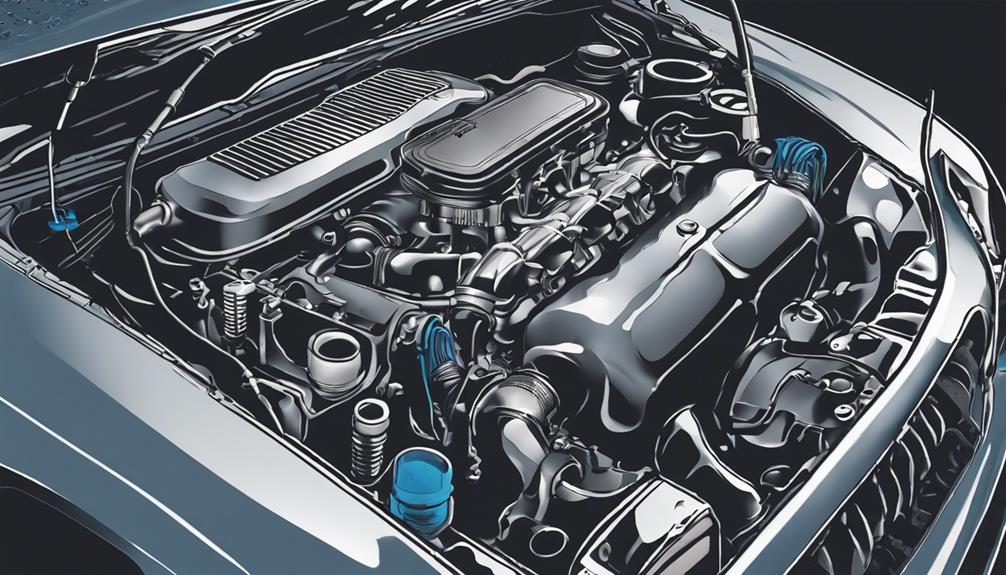
A common indicator of potential issues with the PCV valve or breather filter is engine misfires. Engine misfires occur when the air-fuel mixture in the combustion chamber fails to ignite at the right time or doesn't ignite at all. This can lead to a noticeable lack of power, rough running, and even engine stalling.
Troubleshooting tips for engine misfires include checking for vacuum leaks, inspecting the spark plugs, spark plug wires, and ignition coils for wear or damage. Common causes of engine misfires related to the PCV valve or breather filter can include a clogged PCV valve leading to excessive crankcase pressure, which affects the air-fuel mixture ratio, or a dirty breather filter causing improper ventilation.
It's essential to address engine misfires promptly as prolonged misfiring can lead to damage to the catalytic converter and other engine components. Regular maintenance and inspection of the PCV system can help prevent engine misfires and ensure peak engine performance.
High Fuel Consumption
If you notice your vehicle consuming fuel at a faster rate than normal, it could be a sign of a faulty PCV valve or breather filter.
High fuel consumption can lead to excessive emissions output and engine performance issues, affecting your vehicle's overall efficiency.
Addressing these signs promptly is crucial to maintain peak fuel economy and engine function.
Excessive Emissions Output
Experiencing high fuel consumption can be a clear indicator of excessive emissions output, often stemming from a faulty PCV valve or breather filter in your vehicle. When these components fail, they can disrupt the engine's air-fuel mixture, leading to increased emissions and decreased fuel efficiency. To address this issue effectively, consider the following:
- Regular emission testing can help identify abnormal emission levels early on.
- Proper maintenance of the PCV valve and breather filter is vital for pollution control.
- Excessive emissions not only harm the environment but can also impact your vehicle's performance.
- Monitoring fuel consumption patterns can assist in detecting emission-related problems promptly.
- Seeking professional assistance for emission-related issues guarantees accurate diagnosis and timely repairs.
Engine Performance Issues
High fuel consumption can directly impact engine performance, often indicating underlying issues such as a faulty PCV valve or breather filter. When your vehicle consumes more fuel than usual, it can lead to decreased fuel efficiency, resulting in higher costs for you.
To improve engine performance and reduce fuel consumption, regular maintenance is important. Here are some maintenance tips to enhance fuel efficiency:
First, make sure your PCV valve and breather filter are clean and functioning correctly. Next, keep up with routine oil changes and air filter replacements. Additionally, maintaining proper tire pressure and avoiding aggressive driving can also positively impact fuel efficiency.
Oil Leaks
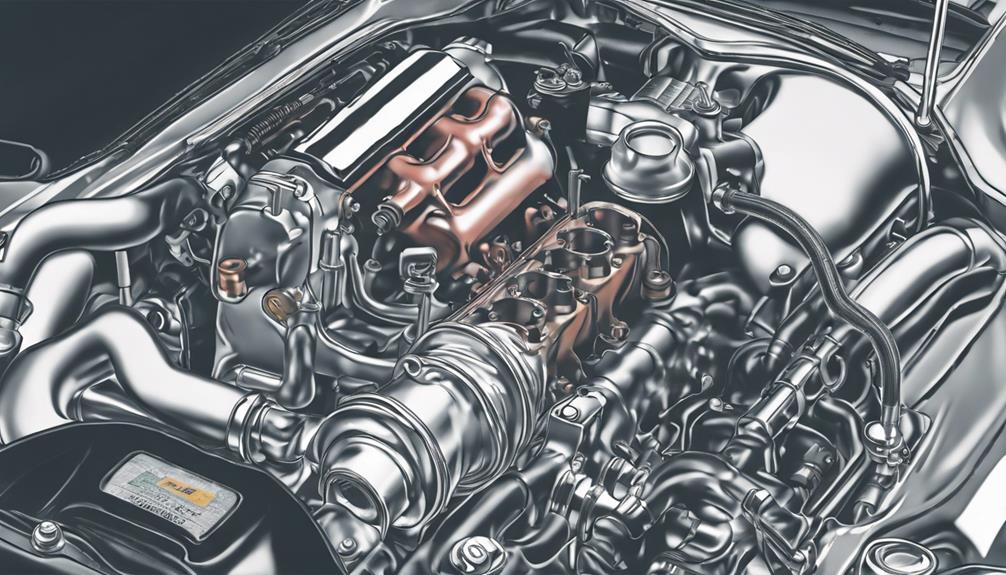
When inspecting for oil leaks related to a faulty PCV valve and breather filter, verify for visible oil around the valve cover gasket and breather hose connections. This can indicate potential issues that need attention to prevent further damage to your engine.
Here are some key areas to focus on:
- Valve Cover Gasket: Examine the valve cover gasket for any signs of wear, cracks, or leaks.
- Breather Hose Connections: Confirm the breather hose connections are tightly secured and free from any oil buildup.
- Oil Pan: Check the oil pan for any signs of oil leaks or seepage.
- PCV Valve: Examine the PCV valve itself for any visible oil leaks or damage.
- Oil Filter: Make sure the oil filter is properly installed and not leaking.
Regularly checking these areas as part of your engine maintenance routine will help you catch any oil leaks early and maintain the health of your oil system.
Smoke From Exhaust
Inspect your vehicle for smoke emanating from the exhaust as it could indicate potential issues related to the PCV valve and breather filter. When troubleshooting exhaust smoke, the color can provide valuable insights. White smoke may suggest coolant or water entering the combustion chamber, indicating a significant issue with the head gasket or a cracked cylinder head. Blue smoke could point towards burning oil, signaling problems such as worn piston rings or valve seals. Black smoke might indicate an important air-fuel mixture, clogged air filter, or issues with the fuel injectors.
For accurate engine diagnostics, pay attention to the frequency and intensity of the smoke, as well as any accompanying symptoms like rough idling or decreased engine performance. If you notice significant or persistent smoke of any color, it's essential to have your vehicle inspected by a qualified mechanic to address the underlying problem promptly. Ignoring exhaust smoke could lead to more severe damage and costly repairs down the road.
Engine Stalling
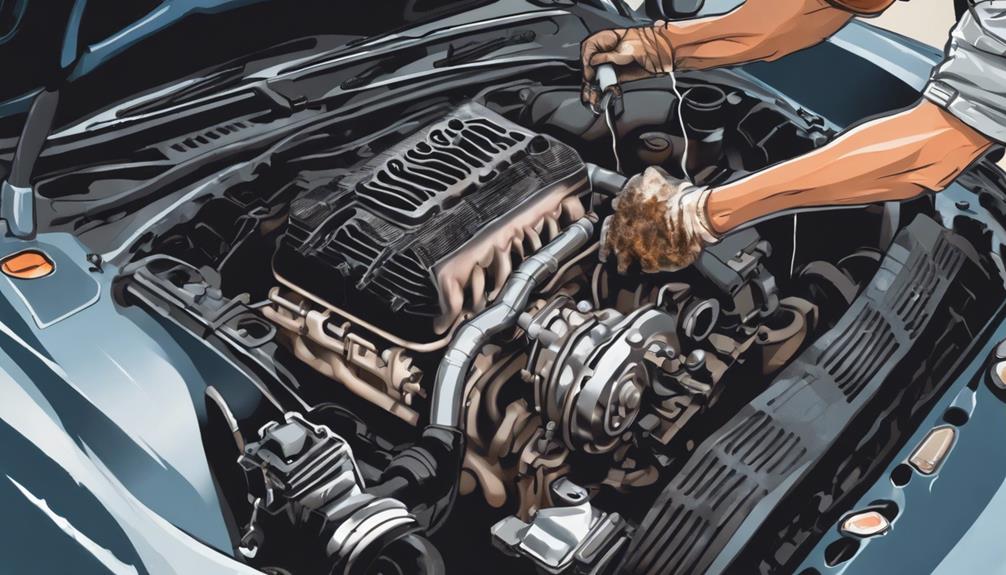
Detecting engine stalling can be indicative of underlying issues with the PCV valve and breather filter. When your engine stalls, it can be a frustrating experience, but it may point towards specific problems that need attention.
Here are some key points regarding:
- Fuel Efficiency: Engine stalling can negatively impact fuel efficiency, as the engine may not be running at its best, leading to wasted fuel.
- Engine Maintenance: Ignoring engine stalling can result in more severe damage over time, highlighting the importance of regular maintenance checks.
- Electrical System: A faulty PCV valve or breather filter can disrupt the electrical system, causing the engine to stall unexpectedly.
- Air-Fuel Mixture: Issues with the PCV valve or breather filter can affect the air-fuel mixture, leading to engine stalling due to improper combustion.
- Sensor Interference: Stalling may trigger sensor interferences, impacting the overall performance of the vehicle and potentially causing further complications.
Addressing engine stalling promptly by inspecting the PCV valve and breather filter can help maintain peak engine performance and fuel efficiency while ensuring proper engine maintenance.
Sluggish Acceleration
To address sluggish acceleration in your vehicle, understanding the role of the PCV valve and breather filter is essential for optimizing engine performance. When these components are faulty, they can directly impact your throttle response and lead to power loss during acceleration. The PCV valve plays an important role in regulating the flow of gases from the engine crankcase, ensuring proper air-fuel mixture ratios. If the PCV valve is clogged or malfunctioning, it can cause a buildup of pressure in the crankcase, affecting engine performance and leading to sluggish acceleration.
Similarly, the breather filter is responsible for filtering out harmful contaminants from the air entering the engine. A clogged breather filter can restrict airflow, impacting the combustion process and resulting in reduced power output. This restriction can lead to slower throttle response and a noticeable decrease in acceleration performance.
Regularly inspecting and replacing the PCV valve and breather filter can help maintain optimal engine function, ensuring smooth acceleration and efficient power delivery. If you notice sluggish acceleration, checking these components should be a priority to keep your vehicle running smoothly.
Frequently Asked Questions
Can a Faulty PCV Valve Cause My Engine to Overheat?
If your engine overheats, a faulty PCV valve can be the culprit. Regular maintenance is important. Confirm your PCV valve is functioning correctly to prevent engine performance issues like overheating. Stay proactive to avoid costly repairs.
Will Using a Higher Quality Breather Filter Prevent Future Issues With My PCV Valve?
You might think a higher quality breather filter is a magic shield, but it won't completely prevent future issues with your PCV valve. Consistent breather maintenance can help valve performance, but it's not a cure-all.
Are There Any Warning Signs or Symptoms That Indicate a PCV Valve Needs to Be Replaced Soon?
To maintain your vehicle's health, watch for early signs like rough idling or increased oil consumption. Replacing a faulty PCV valve promptly is important. Ignoring it could lead to costly engine damage. Regular checks can save you from high replacement costs.
How Often Should I Have My PCV Valve and Breather Filter Inspected and Replaced?
You should have your PCV valve maintenance done every 30,000 miles to guarantee proper engine function. Breather filter lifespan varies but typically needs replacement every 15,000-30,000 miles. Regular checks and replacements keep your vehicle running smoothly.
Can a Clogged Breather Filter Lead to Other Issues in My Engine, Besides Those Mentioned in the Article?
When your breather filter clogs, engine performance suffers as oil contamination spreads. Addressing this issue promptly not only safeguards your engine but also guarantees smooth operation. Don't let a simple filter cause bigger problems.
Conclusion
So there you have it, folks! If you notice any of these 10 signs of a faulty PCV valve and breather filter in your vehicle, don't ignore them. Addressing these issues promptly can help prevent further damage and costly repairs down the line.
Remember, a stitch in time saves nine! Keep an eye out for these symptoms and make sure to get your PCV valve and breather filter checked regularly to keep your engine running smoothly.

